1655 episodes
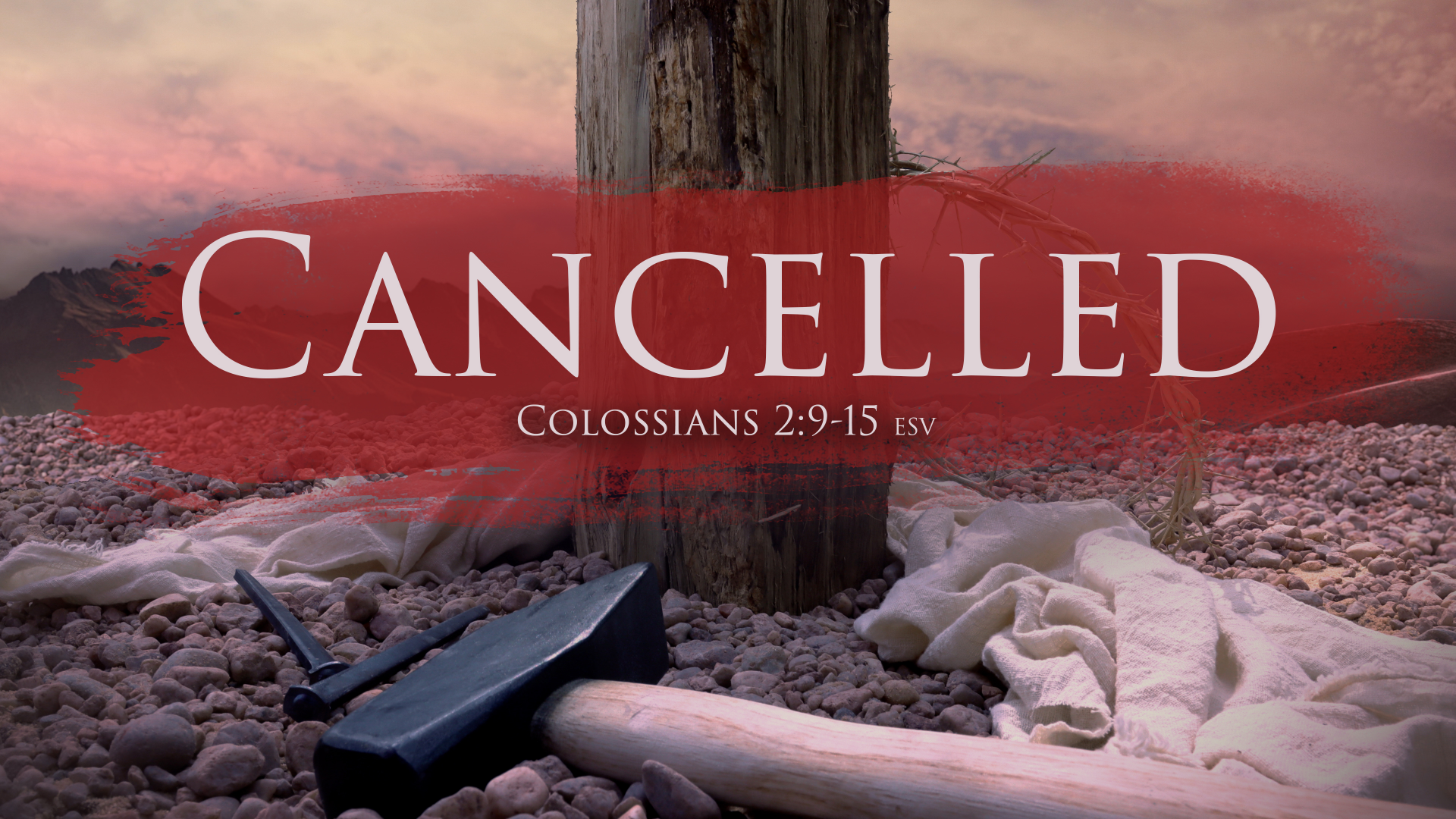

The term canceled has taken a new meaning in this time of social media. It refers to publicly withdrawing support from celebrities or public figures who have done something that is not socially acceptable. Being canceled can have significant consequences on reputations and livelihood. It may result from a statement or action that occurred years ago, but the effect on people's lives is dramatic. In some cases, people are canceled due to racist ideology, child abuse, or other heinous acts in the past. Being canceled has taken on the air of vigilante justice and mob rule. However, it is not limited to exposing past wrongful acts. The crowd and the culture now have control of the mob and will turn on anyone they disagree with, or that challenges their beliefs. The crowd becomes the judge and jury. Increasingly, these efforts are directed toward Christians. Some will do all they can to cancel the cross and Christians. This is not new. Pontius Pilate wanted to let Jesus go, but the crowd wanted him to die. The chief priests persuaded the crowd to turn against Jesus when, just days before, they were southing hosanna as he entered Jerusalem. This Easter Sunday, we celebrate a Lord who willingly laid down His life to save ours. The thieves on either side of Jesus deserved their cross. Jesus did not. He died on the cross that should have been ours. They tried to cancel Jesus, but he died on the cross to cancel our sins that mar our lives. He took the sin in our lives and nailed it to the cross for us. Every one of our mistakes are under the blood. Jesus died so that our sins would be canceled.


The term canceled has taken a new meaning in this time of social media. It refers to publicly withdrawing support from celebrities or public figures who have done something that is not socially acceptable. Being canceled can have significant consequences on reputations and livelihood. It may result from a statement or action that occurred years ago, but the effect on people's lives is dramatic. In some cases, people are canceled due to racist ideology, child abuse, or other heinous acts in the past. Being canceled has taken on the air of vigilante justice and mob rule. However, it is not limited to exposing past wrongful acts. The crowd and the culture now have control of the mob and will turn on anyone they disagree with, or that challenges their beliefs. The crowd becomes the judge and jury. Increasingly, these efforts are directed toward Christians. Some will do all they can to cancel the cross and Christians. This is not new. Pontius Pilate wanted to let Jesus go, but the crowd wanted him to die. The chief priests persuaded the crowd to turn against Jesus when, just days before, they were southing hosanna as he entered Jerusalem. This Easter Sunday, we celebrate a Lord who willingly laid down His life to save ours. The thieves on either side of Jesus deserved their cross. Jesus did not. He died on the cross that should have been ours. They tried to cancel Jesus, but he died on the cross to cancel our sins that mar our lives. He took the sin in our lives and nailed it to the cross for us. Every one of our mistakes are under the blood. Jesus died so that our sins would be canceled.


The stories we tell of our lives can vary depending on the circumstances and experiences. How we chronicle the events of our lives says a lot about us. Faith often struggles in the face of unexpected and unexplained events that come our way. Sometimes, we interpret the unexplained incorrectly as we try to make sense of it. Often, faith turns to fear as we try to make sense of it. This was the case of Manoah in our text. Fortunately for him, his wife had a different perspective and asked, if God were pleased to destroy us, why would he have shown all that to us? As we look back over our lives, we can see the hand of God in situations that we did not understand at the time. That knowledge should be a comfort as we encounter new unexplained circumstances. If God blessed us, then why would he not do that now? We can trust God even when we cannot see where he is going. Would He have brought us all that He has brought us through to forsake us now? Every answered prayer and every unexpected blessing is a prophecy for the future. We need only look back over our lives at all the situations where God has made a way to have confidence that He will make a way in the future. The way we characterize our life, the stories we tell of God's goodness, and our witness to someone who desperately needs to hear it.


The stories we tell of our lives can vary depending on the circumstances and experiences. How we chronicle the events of our lives says a lot about us. Faith often struggles in the face of unexpected and unexplained events that come our way. Sometimes, we interpret the unexplained incorrectly as we try to make sense of it. Often, faith turns to fear as we try to make sense of it. This was the case of Manoah in our text. Fortunately for him, his wife had a different perspective and asked, if God were pleased to destroy us, why would he have shown all that to us? As we look back over our lives, we can see the hand of God in situations that we did not understand at the time. That knowledge should be a comfort as we encounter new unexplained circumstances. If God blessed us, then why would he not do that now? We can trust God even when we cannot see where he is going. Would He have brought us all that He has brought us through to forsake us now? Every answered prayer and every unexpected blessing is a prophecy for the future. We need only look back over our lives at all the situations where God has made a way to have confidence that He will make a way in the future. The way we characterize our life, the stories we tell of God's goodness, and our witness to someone who desperately needs to hear it.
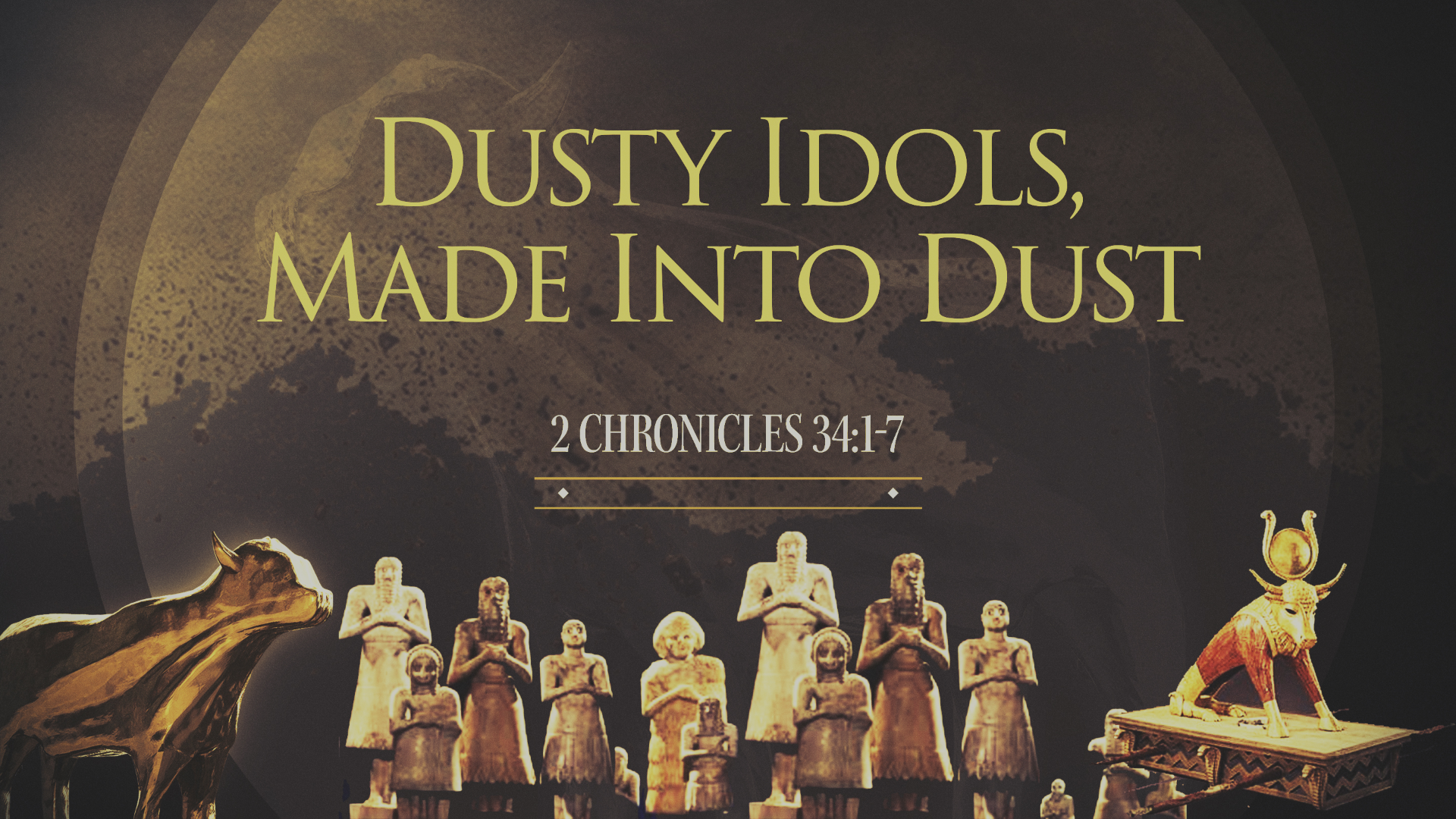

Our text tells about Josiah destroying idols. An idol is not always a little statue that we worship. An idol is anything that replaces God's position. It is not the object that is the problem. The problem is in our heart. Anything that sets itself in place of God is an idol and must be destroyed. It is not enough to remove them; they must be destroyed. Manassas moved the idols outside the city, but his son remembered them from his youth and went to find them when he became king. When we purge the idols from our lives, we must deal with them completely. There are things we have entertained for far too long that we're passing down to our children that will be their downfall. It is not enough to set them aside; we must make them into dust. A young Josiah learned a lesson that we must all learn. The idols must be broken into dust


Our text tells about Josiah destroying idols. An idol is not always a little statue that we worship. An idol is anything that replaces God's position. It is not the object that is the problem. The problem is in our heart. Anything that sets itself in place of God is an idol and must be destroyed. It is not enough to remove them; they must be destroyed. Manassas moved the idols outside the city, but his son remembered them from his youth and went to find them when he became king. When we purge the idols from our lives, we must deal with them completely. There are things we have entertained for far too long that we're passing down to our children that will be their downfall. It is not enough to set them aside; we must make them into dust. A young Josiah learned a lesson that we must all learn. The idols must be broken into dust






We have all had things we did not know how to overcome. It is easy, while in the midst of difficult situations, to not be able to see an end. Those living during the 1920s thought the tough times would not end, but eventually, they did, and our nation saw prosperity like no one in the 20s could have imagined. Those present things become former things The inverse is five too. Some people long for the good old days. They feel that the good times are as good as it will ever be. That is not how God works. If He did it, then He can do greater in the future. Both the good and the bad fade from view as time goes on and greater things take their place. Too many people live on past blessings and success. They cannot let go of the past to embrace the future. We must let God do new things in our Ike, but we have to let go of past things Whatever our present is, we have to be open to the new things God has for us. What a great promise it is that God wants better no matter what we have now. If we are to receive what God has, we may have to lay some things down. Maybe it is a hurt or pain. Maybe it is a victory or success. Whatever it is, we must lay it down to receive what God is offering. We must let go of something to get to that next place. The former may have been great, but the latter will be better. No matter how good the great was, he is moving us to something better. We will not get through the door holding on to past pain and grudges. We also won’t get through the door holding on to trophies and past victories. In order to receive what god has for us, we must let the present things become the former things.


We have all had things we did not know how to overcome. It is easy, while in the midst of difficult situations, to not be able to see an end. Those living during the 1920s thought the tough times would not end, but eventually, they did, and our nation saw prosperity like no one in the 20s could have imagined. Those present things become former things The inverse is five too. Some people long for the good old days. They feel that the good times are as good as it will ever be. That is not how God works. If He did it, then He can do greater in the future. Both the good and the bad fade from view as time goes on and greater things take their place. Too many people live on past blessings and success. They cannot let go of the past to embrace the future. We must let God do new things in our Ike, but we have to let go of past things Whatever our present is, we have to be open to the new things God has for us. What a great promise it is that God wants better no matter what we have now. If we are to receive what God has, we may have to lay some things down. Maybe it is a hurt or pain. Maybe it is a victory or success. Whatever it is, we must lay it down to receive what God is offering. We must let go of something to get to that next place. The former may have been great, but the latter will be better. No matter how good the great was, he is moving us to something better. We will not get through the door holding on to past pain and grudges. We also won’t get through the door holding on to trophies and past victories. In order to receive what god has for us, we must let the present things become the former things.


Our text comes from Jesus' answer to a question about the end times. It is a truth that can deliver us from any torment that might come into our life. Understanding this will calm most any situation. This is the greatest source of hope contained in scripture. Everyone of us is engaged in a battle within ourselves that can wear us down and can bring our demise. We have learned how to hide these private battles The simple words of our text is the secret to overcoming: In your patience possess ye your souls. Or as the NLT translates: By standing firm, you will win your souls. In what ever battle we find ourselves, simply enduring will lead to victory. We may get knocked down, but we can get back up. God has set something in motion in our life, and he will not fail or be dissuaded until that is fulfilled. This scripture does not promise that we will not have any more problems. It does not say we will know and more than we know now. We may not have any more insight about our issues, but it gives us an insight to who our God is. It says of we do it, we will win the most important thing: our soul. The Greek word used here for patience is combined of two root words that mean submission and waiting. The exercising of submissive waiting is where we will the war within. Three areas we must focus on Patience with ourselves Patience in our circumstances Patience with God. God's timing is not our timing, but it’s the right time.


Our text comes from Jesus' answer to a question about the end times. It is a truth that can deliver us from any torment that might come into our life. Understanding this will calm most any situation. This is the greatest source of hope contained in scripture. Everyone of us is engaged in a battle within ourselves that can wear us down and can bring our demise. We have learned how to hide these private battles The simple words of our text is the secret to overcoming: In your patience possess ye your souls. Or as the NLT translates: By standing firm, you will win your souls. In what ever battle we find ourselves, simply enduring will lead to victory. We may get knocked down, but we can get back up. God has set something in motion in our life, and he will not fail or be dissuaded until that is fulfilled. This scripture does not promise that we will not have any more problems. It does not say we will know and more than we know now. We may not have any more insight about our issues, but it gives us an insight to who our God is. It says of we do it, we will win the most important thing: our soul. The Greek word used here for patience is combined of two root words that mean submission and waiting. The exercising of submissive waiting is where we will the war within. Three areas we must focus on Patience with ourselves Patience in our circumstances Patience with God. God's timing is not our timing, but it’s the right time.


Jesus spoke often about the Kingdom of Heaven. All of us want to get to heaven, and we pray for all of our family and friends who are lost to make it, too. Anything less than all of our family making it to heaven is unacceptable. We must ensure that our children and grandchildren hear about and know how to reach the kingdom. In all that John saw in the book of Revelation, he did not mention anyone asking for explanations for what happened on Earth. He saw people bowing, singing, and worshiping! God denied people with a complaining spirit entry to the promised land. Why would he let people with that kind of spirit into heaven? We must focus our sights on the prize and not be distracted by the things of this world that will all fade away. It is not enough to get to heaven; we must do all we can to ensure that our family, friends, brothers, and sisters make it, too. We must look forward to a day when we all get to heaven.


Jesus spoke often about the Kingdom of Heaven. All of us want to get to heaven, and we pray for all of our family and friends who are lost to make it, too. Anything less than all of our family making it to heaven is unacceptable. We must ensure that our children and grandchildren hear about and know how to reach the kingdom. In all that John saw in the book of Revelation, he did not mention anyone asking for explanations for what happened on Earth. He saw people bowing, singing, and worshiping! God denied people with a complaining spirit entry to the promised land. Why would he let people with that kind of spirit into heaven? We must focus our sights on the prize and not be distracted by the things of this world that will all fade away. It is not enough to get to heaven; we must do all we can to ensure that our family, friends, brothers, and sisters make it, too. We must look forward to a day when we all get to heaven.
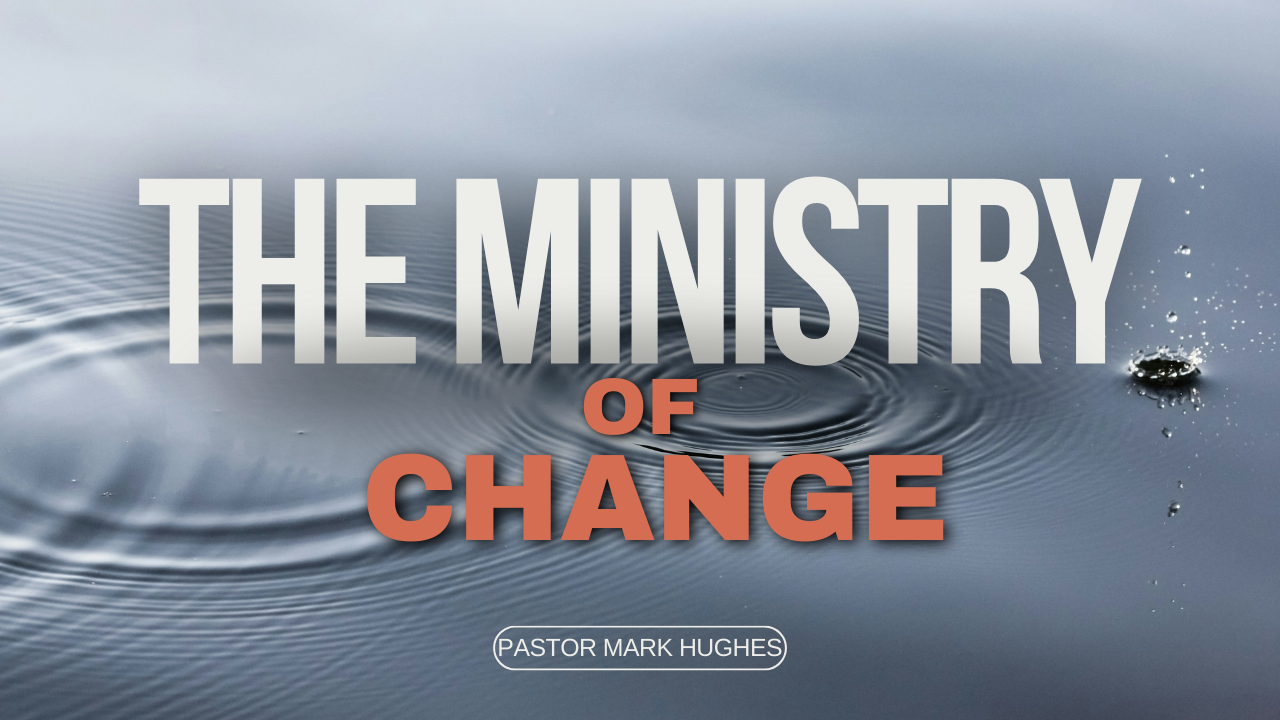

We all say we want God's will to be fulfilled. Often, that comes in ways we do not understand or expect. Sometimes, God's will takes us down a path of tension and discomfort. Sometimes, that uncomfortable and painful path is to get our attention and move us toward decisions that we might be unwilling to make if we were not to move out of our comfort zone. Until we are willing to get out of our routine and comfort zone, we may not be able to hear what God is trying to tell us. God's will often involves change. Most people do not like change and even fear it. Change happens around us all the time; it is inevitable. Why do we fear change and try to resist it? Because change forces us to grow. Without change, our lives would devolve into an unhealthy, stagnant state. The greatest tragedy in life is not to change. There is a place God is trying to get us to, and we cannot get there if we remain unchanged. We must look at change as an opportunity, not a threat. In so doing, we open ourselves up to God's blessing. As we enter this season of change in our church, Brother Hughes encourages us to do three things. First, we must face our fears. Change is scary, but not changing is not any better. Second, focus on the purpose. The proper perspective is essential and will frame our attitude. Finally, we utilize our faith to encourage us for the future based on what God has seen us through in the past.


We all say we want God's will to be fulfilled. Often, that comes in ways we do not understand or expect. Sometimes, God's will takes us down a path of tension and discomfort. Sometimes, that uncomfortable and painful path is to get our attention and move us toward decisions that we might be unwilling to make if we were not to move out of our comfort zone. Until we are willing to get out of our routine and comfort zone, we may not be able to hear what God is trying to tell us. God's will often involves change. Most people do not like change and even fear it. Change happens around us all the time; it is inevitable. Why do we fear change and try to resist it? Because change forces us to grow. Without change, our lives would devolve into an unhealthy, stagnant state. The greatest tragedy in life is not to change. There is a place God is trying to get us to, and we cannot get there if we remain unchanged. We must look at change as an opportunity, not a threat. In so doing, we open ourselves up to God's blessing. As we enter this season of change in our church, Brother Hughes encourages us to do three things. First, we must face our fears. Change is scary, but not changing is not any better. Second, focus on the purpose. The proper perspective is essential and will frame our attitude. Finally, we utilize our faith to encourage us for the future based on what God has seen us through in the past.


We like it when we are at the right place at the right time. It is possible to be in the right place and at the right time but in the wrong position. The Bible tells us they came together that night to break bread and listen to Paul preach. They were there for the right reasons, but after breaking bread, Eutychus got comfortable and fell asleep. It is possible to find ourselves in that place spiritually. When we get comfortable, we risk falling asleep. We can be there in body but be asleep. Eutychus allowed himself to become comfortable and fell to this apparent demise. We must do all that we can to stay awake. We cannot become comfortable. Fortunately for him, Paul was there to revive him. We have all had someone who still saw life in us when we fell. We were not created to live in a lot of comfort. God wants us to follow the path he has for us. And that is not always a comfortable place. We cannot allow ourselves to become comfortable and complacent.


We like it when we are at the right place at the right time. It is possible to be in the right place and at the right time but in the wrong position. The Bible tells us they came together that night to break bread and listen to Paul preach. They were there for the right reasons, but after breaking bread, Eutychus got comfortable and fell asleep. It is possible to find ourselves in that place spiritually. When we get comfortable, we risk falling asleep. We can be there in body but be asleep. Eutychus allowed himself to become comfortable and fell to this apparent demise. We must do all that we can to stay awake. We cannot become comfortable. Fortunately for him, Paul was there to revive him. We have all had someone who still saw life in us when we fell. We were not created to live in a lot of comfort. God wants us to follow the path he has for us. And that is not always a comfortable place. We cannot allow ourselves to become comfortable and complacent.
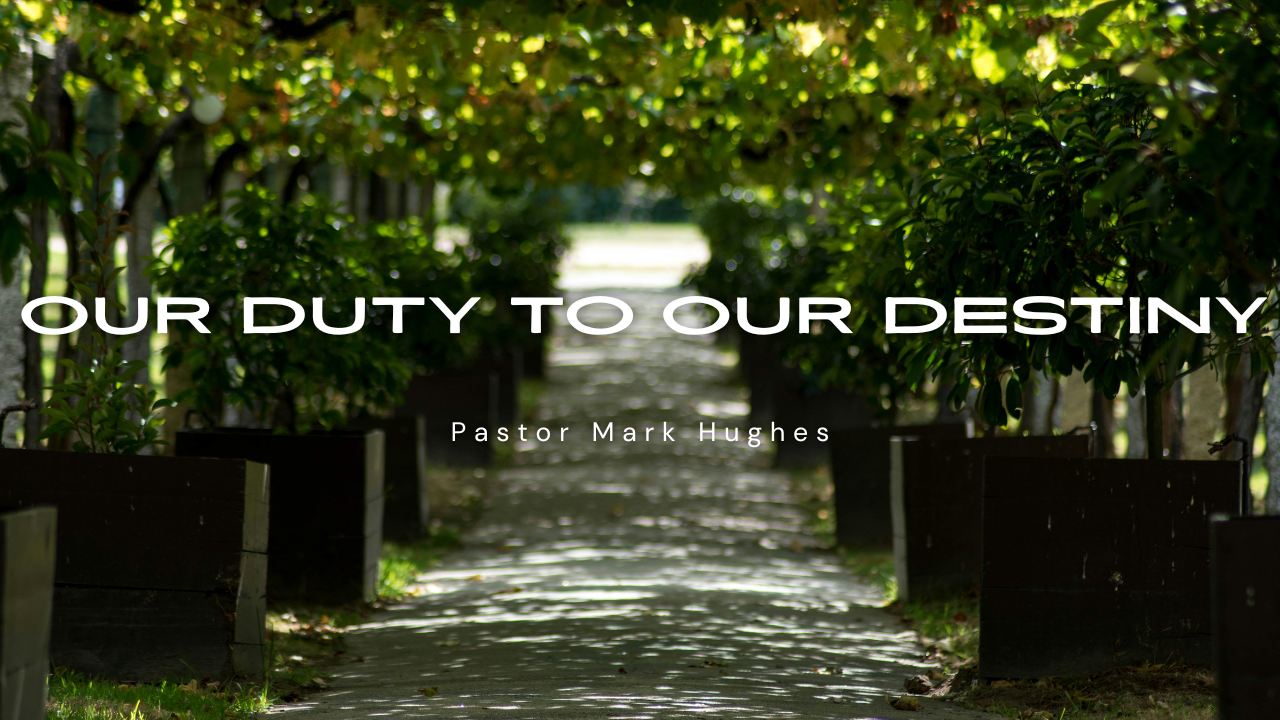

The word "everything" in our text is all-inclusive. Every activity, experience, and occurrence is set and fixed by God. To everything, there is a season and a time for every purpose…. Season means an event or circumstance over which we have no control. God will bring things to us in His season. Time, however, is under our control. We choose how and when we respond to the seasons of life. Bible scholars believe Solomon wrote Ecclesiastes in the later years of his life as a reflection of his wisdom. From that vantage point, it is easy to see the changes and movements from what we once were to now. If we do not change, we risk getting out of sync with God's life plan. We receive blessings, knowledge, and understanding if we remain in sync with God. One of life's lessons is that we are better served by accepting what God is trying to do rather than trying to stop it. Our duty to our destiny is to follow God's direction and will.


The word "everything" in our text is all-inclusive. Every activity, experience, and occurrence is set and fixed by God. To everything, there is a season and a time for every purpose…. Season means an event or circumstance over which we have no control. God will bring things to us in His season. Time, however, is under our control. We choose how and when we respond to the seasons of life. Bible scholars believe Solomon wrote Ecclesiastes in the later years of his life as a reflection of his wisdom. From that vantage point, it is easy to see the changes and movements from what we once were to now. If we do not change, we risk getting out of sync with God's life plan. We receive blessings, knowledge, and understanding if we remain in sync with God. One of life's lessons is that we are better served by accepting what God is trying to do rather than trying to stop it. Our duty to our destiny is to follow God's direction and will.
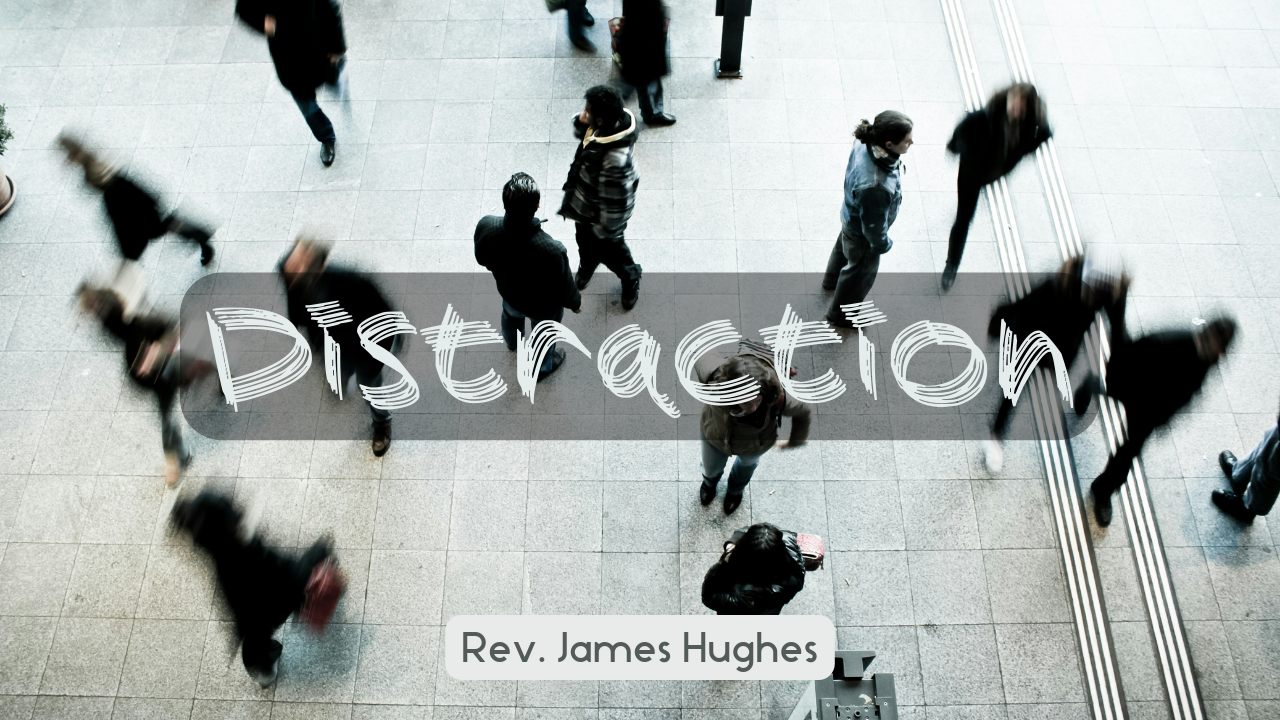

Our world is full of distractions. All forms of electronic media and devices engineered to hold our attention all too often do just that, and we can waste hours scrolling away. However, distractions in life are not new; we are just observing the latest vehicle for it. Jesus came into a world divided by factions and nations that often hated each other simply because they were from different places. Our world (and theirs) makes it easy to feel like we are the center of our universe. The root of this is selfishness, and selfishness is the root sin of all other sins. One of the first casualties of selfishness is thankfulness, which leads to a sense of entitlement. We crave attention and recognition when we are the center of our universe. Some judge their success by how much attention or credit they receive and how well they are known. However, the attention and recognition given by the world is not important. True success is defined by how our children and grandchildren know us. Our words and opinions will not change the world; our lives will change the world. The distractions in life will keep us from having the relationship with God and our family that will truly define our success.


Our world is full of distractions. All forms of electronic media and devices engineered to hold our attention all too often do just that, and we can waste hours scrolling away. However, distractions in life are not new; we are just observing the latest vehicle for it. Jesus came into a world divided by factions and nations that often hated each other simply because they were from different places. Our world (and theirs) makes it easy to feel like we are the center of our universe. The root of this is selfishness, and selfishness is the root sin of all other sins. One of the first casualties of selfishness is thankfulness, which leads to a sense of entitlement. We crave attention and recognition when we are the center of our universe. Some judge their success by how much attention or credit they receive and how well they are known. However, the attention and recognition given by the world is not important. True success is defined by how our children and grandchildren know us. Our words and opinions will not change the world; our lives will change the world. The distractions in life will keep us from having the relationship with God and our family that will truly define our success.
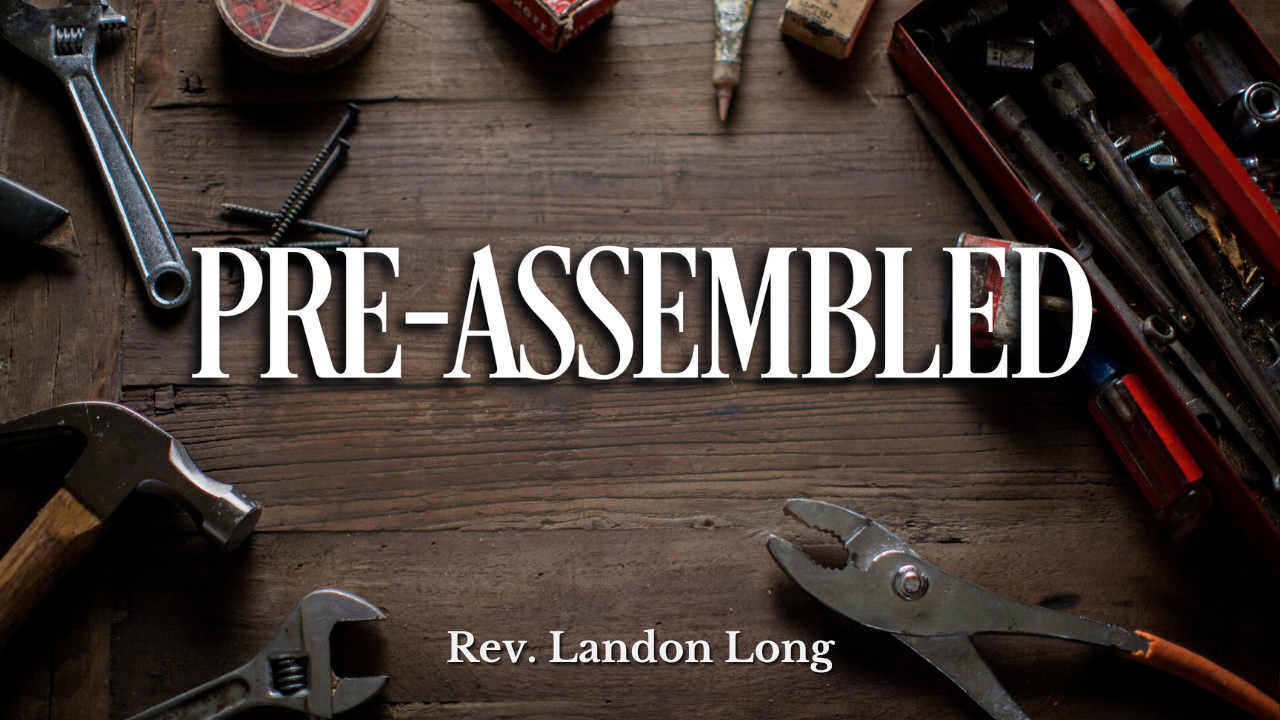

Tonight's text is from a portion of scripture that contains details about the construction of Solomon's Tabernacle. We are often tempted to skip over such information, but tucked in the middle of these details of size, materials, and proportions is a lesson in how to fully experience God's goodness. King David had set out to build a place for God to dwell, but God stayed him from that because of his warrior past. Instead, David gathered the materials and left detailed instructions for his son, Solomon, to build. Our text says that the stones were made ready before getting to the building site. These stones were the literal building blocks of the church. The church is made up of people. Therefore, we can compare ourselves to those stones. Like those stones, we must be prepared before we get to the house of God. There is work to be done shaping and dressing the stones before they are ready to be used in the temple. If we wait to prepare ourselves until we get to church, we spend too much time being distracted (and distracting others) trying to focus on the purpose of being in the church: to worship God and receive what He has for us. How often do we limit what God can do for us because He has to spend so much time working on us when we should be focused on Him? What would happen if we showed up to church pre-assembled and ready to be used? If we do that, we can enjoy all God has for us.


Tonight's text is from a portion of scripture that contains details about the construction of Solomon's Tabernacle. We are often tempted to skip over such information, but tucked in the middle of these details of size, materials, and proportions is a lesson in how to fully experience God's goodness. King David had set out to build a place for God to dwell, but God stayed him from that because of his warrior past. Instead, David gathered the materials and left detailed instructions for his son, Solomon, to build. Our text says that the stones were made ready before getting to the building site. These stones were the literal building blocks of the church. The church is made up of people. Therefore, we can compare ourselves to those stones. Like those stones, we must be prepared before we get to the house of God. There is work to be done shaping and dressing the stones before they are ready to be used in the temple. If we wait to prepare ourselves until we get to church, we spend too much time being distracted (and distracting others) trying to focus on the purpose of being in the church: to worship God and receive what He has for us. How often do we limit what God can do for us because He has to spend so much time working on us when we should be focused on Him? What would happen if we showed up to church pre-assembled and ready to be used? If we do that, we can enjoy all God has for us.


None of us have arrived where we are in life by ourselves. Along the way, we have enjoyed help from others and blessings from God. God has a plan for all our lives, and if we take time to look, we can see that influence as we look back over the events of our lives. Even during times of trial and tears, God's hand has guided and directed us. God has not blessed and done all He has for us to waste it all on ourselves. We must share the goodness of God with others so that they, too, can witness that goodness. The Bible describes the scene in the upper room as the sound of a mighty rushing wind. The original word in the Greek can be translated as an echo. An echo is a sound reflected off of a surface. What are we reflecting? Do we transmit the goodness of God? Do others observe a life blessed by a loving, compassionate God? We must reflect a loving God and pass stories of His goodness, mercy, and love to subsequent generations. It is up to us to ensure the kingdom of God is generational.


None of us have arrived where we are in life by ourselves. Along the way, we have enjoyed help from others and blessings from God. God has a plan for all our lives, and if we take time to look, we can see that influence as we look back over the events of our lives. Even during times of trial and tears, God's hand has guided and directed us. God has not blessed and done all He has for us to waste it all on ourselves. We must share the goodness of God with others so that they, too, can witness that goodness. The Bible describes the scene in the upper room as the sound of a mighty rushing wind. The original word in the Greek can be translated as an echo. An echo is a sound reflected off of a surface. What are we reflecting? Do we transmit the goodness of God? Do others observe a life blessed by a loving, compassionate God? We must reflect a loving God and pass stories of His goodness, mercy, and love to subsequent generations. It is up to us to ensure the kingdom of God is generational.


Some people look across the ocean and wonder what is on the other side. They look to see what is beyond and what is to come. Most of us, however, could be more adventurous. We like the comfort and familiarity of our lives. For most of us, venturing on a journey to the unknown makes us uncomfortable. In our text, Jesus invites the disciples to go to the other side of the Sea of Galilee. He did not force them to go. God is always inviting us to a better place. He does not force us but draws us there. God leads us on a journey to better things. The trip may have difficulty, but the result is always better than where we are now. Discomfort is the price of growth. We must go through some things to get to where God wants us to be. The disciples did not know they were sailing into a storm when they boarded the ship. When they began their trip, they were full of faith, but as the storm came on them, they shifted their focus from faith to themselves, and fear set in. Fear will cause us to question the promise of God. But, the promise of God is secure. Jesus said, "Let us go to the other side". The promise in that was that they would GET to the other side. Wherever God is taking us, it is worth the trip, and we must focus faith on Him and trust him on the journey.


Some people look across the ocean and wonder what is on the other side. They look to see what is beyond and what is to come. Most of us, however, could be more adventurous. We like the comfort and familiarity of our lives. For most of us, venturing on a journey to the unknown makes us uncomfortable. In our text, Jesus invites the disciples to go to the other side of the Sea of Galilee. He did not force them to go. God is always inviting us to a better place. He does not force us but draws us there. God leads us on a journey to better things. The trip may have difficulty, but the result is always better than where we are now. Discomfort is the price of growth. We must go through some things to get to where God wants us to be. The disciples did not know they were sailing into a storm when they boarded the ship. When they began their trip, they were full of faith, but as the storm came on them, they shifted their focus from faith to themselves, and fear set in. Fear will cause us to question the promise of God. But, the promise of God is secure. Jesus said, "Let us go to the other side". The promise in that was that they would GET to the other side. Wherever God is taking us, it is worth the trip, and we must focus faith on Him and trust him on the journey.


Every new year brings a focus on changing habits, losing weight, and other efforts to build a "new year, new you." Historically, most of these efforts will fail because seeing results often takes time and dedication. Humanity does not like to wait. We have increasingly become a society that expects instant gratification and minimal waiting for results. We have become so impatient that many will accept mediocre results if they materialize faster. Unfortunately, this creeps into our spiritual lives as well. We come to church but wonder when the service will end because we have lunch reservations. Waiting on God is more important than anything else we can do. God is not limited by time and is not subject to our schedule. God moves when He needs to move. Hurrying is the death of prayer, a move of God, and our relationship with Him. We must slow down to walk at God's pace or risk running ahead and leaving Him behind. It is easy for us to wait if we know how long. We can then compare the reward and determine if it is worth the time. Going to a nice restaurant and facing a 45-minute wait for a table may be acceptable, but none of us would wait 45 minutes to be served at a fast food restaurant. The reward is not worth the time. We know the promise of God, and no matter how long we wait, it will be worth it. We cannot settle for less because we are not willing to wait. So how long do we have to wait? The Bible says UNTIL. We wait until God delivers. With God, the reward is always worth the wait.


Every new year brings a focus on changing habits, losing weight, and other efforts to build a "new year, new you." Historically, most of these efforts will fail because seeing results often takes time and dedication. Humanity does not like to wait. We have increasingly become a society that expects instant gratification and minimal waiting for results. We have become so impatient that many will accept mediocre results if they materialize faster. Unfortunately, this creeps into our spiritual lives as well. We come to church but wonder when the service will end because we have lunch reservations. Waiting on God is more important than anything else we can do. God is not limited by time and is not subject to our schedule. God moves when He needs to move. Hurrying is the death of prayer, a move of God, and our relationship with Him. We must slow down to walk at God's pace or risk running ahead and leaving Him behind. It is easy for us to wait if we know how long. We can then compare the reward and determine if it is worth the time. Going to a nice restaurant and facing a 45-minute wait for a table may be acceptable, but none of us would wait 45 minutes to be served at a fast food restaurant. The reward is not worth the time. We know the promise of God, and no matter how long we wait, it will be worth it. We cannot settle for less because we are not willing to wait. So how long do we have to wait? The Bible says UNTIL. We wait until God delivers. With God, the reward is always worth the wait.